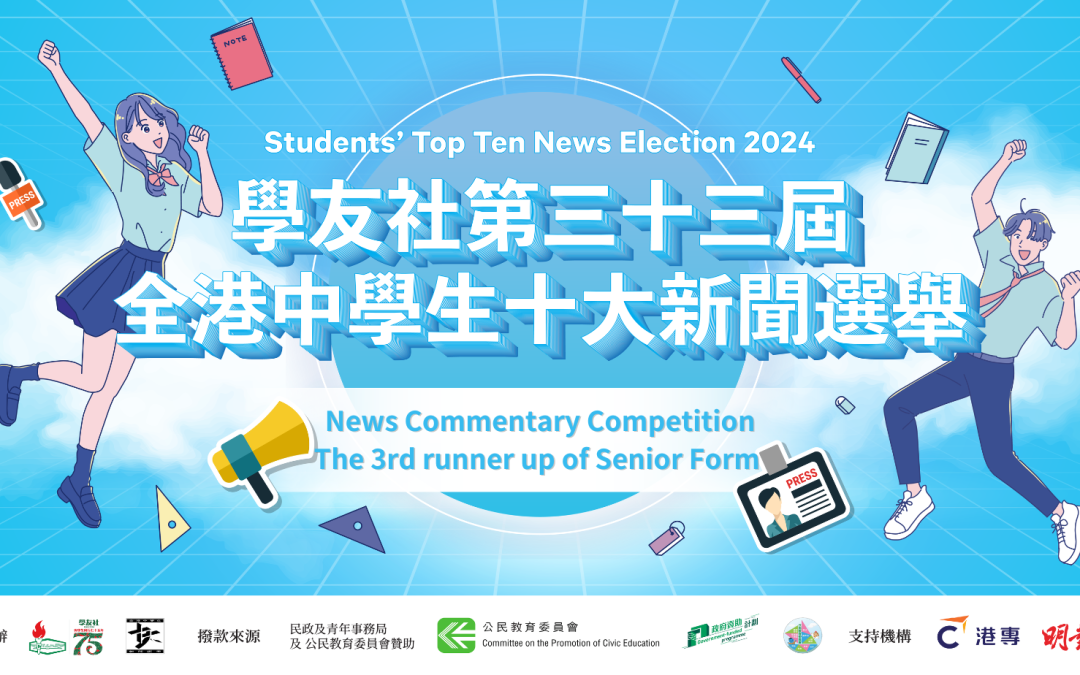Cheung Ka Long, Siobhan Bernadette Haughey, and Vivian Kong. These Olympic medalists, along with numerous other Hong Kong representatives, have raised public interest in sports following their fruitful return from the 2024 Paris Olympics. However, behind all the glistening medals, towering podiums and thunderous applause was their unmatched effort, time and sweat dedicated to perfecting their skills. This raises a question: are our athletes getting the treatment they deserve for their commitment?
According to CNBC Sport, Hong Kong topped the list of highest Olympic medal bonuses, with athletes receiving $768,000, $384,000, and $192,000 USD for every gold, silver and bronze medal respectively. Compared to the Tokyo Summer Olympics, Hong Kong athletes receive 20% more cash incentives this year — which is partly brought by the success of the Tokyo Olympics — and according to The Standard, MTR offered free lifetime tickets to all medalists. The Hong Kong society offered a colossal amount of rewards in recognition of the athletes’ achievements, and the importance of sports in Hong Kong is rapidly increasing with no signs of slowing down.
Though important the result may be, what is crucial in helping the result shine bright is the process. According to the website of the HKSAR and Hong Kong Sports Institute, athletes are provided with a direct financial grant of up to $50,000, professional coaching, opportunities for training and competitions around the globe, and many more, all supported by various grants and support schemes.
However, in an interview with 14-year-old robe jumping athlete Kaylie Wong, she reflected some flaws in the scheme. As rope jumping is not listed as one of the subsidized sports, she has to spend approximately $6000 HKD on training every month and represent Hong Kong to participate in competitions abroad at her own expense, amounting up to $30,000 HKD. On top of all the sacrificed rest put in honing her skills, she has to shoulder additional financial burden just to gain more experience, when many other athletes are sponsored by the government to partake in such activities.
Aside from sports without aid allowance, another issue is the low salary of full time and part time athletes. As of 2024, wages of athletes are classified into different categories, namely Elite A+, Elite B+, Elite B, Elite C, and senior squad. Athletes of Elite C and above are typically those who are qualified for the Olympics, an impressive feat that is the goal of many, and they receive a monthly wage of $11,520 HKD, which is lower than the average monthly salary of $19,800 in Hong Kong. Even though athletes are provided with accommodation and coaching, they have to bear some fees for equipment or competition themselves, which leaves them with limited income. Some athletes choose to take on additional jobs such as coaching to cover their expenses, which takes up some of their time and effort they could have spent on refining their skills.
Athletes receive a large sum after winning trophies but are provided with inadequate support in their training. This somewhat reflects a common mindset of Hong Kong people that the result is more important than the process. Although the outcome also has its significance, and athletes should be commended for their achievements, what should be the main focus is the process. Many have the talent to achieve outstanding results, but few have the resolve to set their dreams into action and devote countless hours to it. Especially professional athletes who are not particularly skilled, they may dedicate the same, if not more effort than their high achieving counterparts, but earn far less. This reflects that the achievements of athletes should not be the major factor in determining their wage.
There is a stereotype that doing sports will not lead to a bright future. Numerous parents urge their children to treat sports as nothing more than a hobby and instead devote their time and energy on academics. Although that may be true with the low wage of athletes, being a professional is an honorable job that is not for the weak of heart. Many talented teens may have the will, dedication and skill to become a professional, but are forced to give up on their dreams due to the low income partnered with their family’s opinions. The government should increase the benefits of athletes to falsify these stereotypes and encourage more aspiring young sportsmen to become professional, promoting sports as an occupation rather than just a hobby.
Although there seems to be little we can do to alleviate this problem regarding government policies, there are actually a few things normal citizens like us in the community can do. We can start by heightening awareness of this problem and hopefully persuade the government to improve the policy. Another action we can take is to support any athletes around us regardless of their skill level, a little support goes a long way. Simple acts such as showing appreciation and respect for their hard work will benefit the health of their mindset greatly.
Sports in Hong Kong is experiencing some obstacles in promoting its development. With limited resources, stereotypes, and heavy investment, both in terms of time and financially, many in the community will not have the chance to shine. We can contribute by drawing attention to this issue and providing moral support to athletes around us. To be more inclusive and to encourage more people to participate, the government should evaluate their sports subsidy to athletes.
To answer the question, Hong Kong athletes are getting the treatment they deserve for their achievements, but not for their perseverance behind the scenes, a shining example of their sportsmanship and the most difficult to achieve.
_______________________
Kwong Hei To Charlotte
News Commentary Competition – The 3rd Runner up of Senior Form
Diocesan Girls’ School

